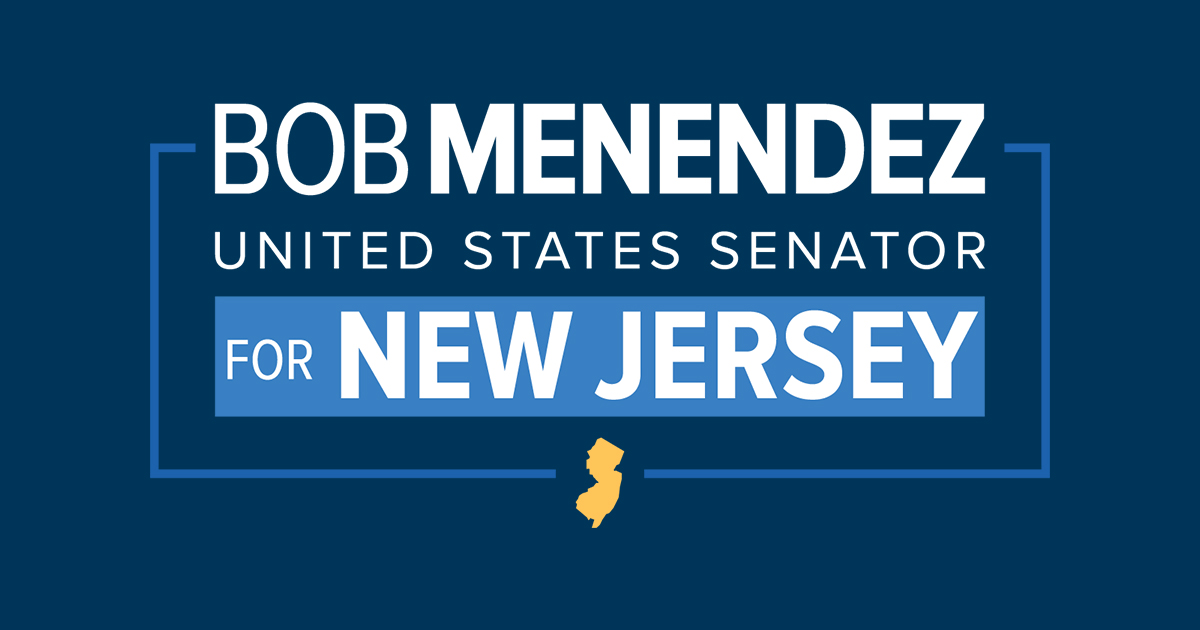Source: United States Senator for New Jersey Bob Menendez
EAST ORANGE, N.J. – U.S. Senator Bob Menendez (D-N.J.) heard from New Jersey parents, providers and advocates about the impact of the high cost of childcare as well as the critical gaps in our nation’s childcare infrastructure during a listening session today. The childcare sector has lost 1 in 9 jobs since the start of the pandemic.
Senator Menendez is urging support for a reconciliation bill that makes expanded investments in pre-K, early childhood infrastructure and the childcare workforce, and ensures that working-and middle-class families do not spend more than 7 percent of their income on childcare costs. In New Jersey alone, 92 licensed childcare centers have closed since the beginning of the pandemic. Childcare costs make-up to 14.6% of the median income of a family living in New Jersey.
“As everyone knows, the word that could most accurately describe the state of childcare in America today is the word ‘crisis.’ Between soaring costs, lack of availability, staff shortages and more, an industry that was barely limping along before is now collapsing before our eyes,” said Sen. Menendez. “We can start to fix this collapsing system by making critical investments in our nation’s childcare infrastructure. We can cap costs once-and-for-all so that the only decision a parent has to make is whether to send their kids to the high-quality provider down the street or the one up the road.”
President Biden’s plan could save a typical New Jersey family up to $27,000 on childcare expenses.
CLICK TO VIEW SENATOR’S OPENING REMARKS
Ensuring affordable and accessible childcare also has considerable labor market implications. Difficulties accessing childcare has a disproportionate impact on women, who are more likely to take on unpaid childcare responsibilities. And, mothers who have difficulty finding childcare are much less likely to find employment. More than 40% of mothers have felt that childcare issues have negatively impacted their careers. The estimated costs of lost earnings and revenue due to childcare challenges amounts to $57 billion each year.
“As a working mother of four children, I can tell you that, even before the pandemic, the rising costs of child care and the long waiting lists were not working for New Jersey parents. Now we are facing a deep crisis,” said Rep. Mikie Sherrill. “We need to change the status quo and make long-term investments in America’s child care. Addressing the child care crisis will improve New Jersey families’ immediate well-being and economic security while increasing state-wide economic growth. I want to thank Senator Menendez for his leadership and I look forward to continuing to work with him on this critical issue.”
“Childcare is one of the most critical economic problems in our country,” said Rep. Donald M. Payne, Jr. “Too many New Jersey parents are paying more than $16,000 per year to care for their children. These costs are only going to increase with the closing of 92 childcare centers in the last two years. Americans should be able to work without the constant struggle to find quality and affordable childcare. I support the Build Back Better Act because it would cap childcare expenses for working- and middle-class families at seven percent of the family’s income. In addition, the Act provides universal pre-kindergarten for American three- and four-year-old children and expands the Child Tax Credit for another year. I applaud Senator Menendez for bringing attention to an issue that affects my constituents and millions of New Jersey families.”
According to a recent report by the Center for American Progress, over the past thirty years, childcare prices have risen more than twice the rate of inflation and significantly faster than the price of food, housing, and other goods. The pandemic has accelerated these trends, with data from the organization Childcare Aware of America reporting that childcare inflation exceeded annual inflation in 2020 by nearly 4 percent.
“Childcare is an integral part of America’s economic infrastructure. Pre-pandemic, the childcare industry was teetering on the verge of collapse, but now almost two years later, the system is actually collapsing,” said Winifred Smith-Jenkins, MHA, IMH-E®, Senior Director of Zadie’s Early Childhood Center. “Students’ stress behaviors are at an all-time high, our profit margins are in the negative range and our workforce is in shambles. We need to fund childcare as a public good now if we want our economic recovery to forward and build America back better.”
The American Rescue Plan included $39 billion in additional childcare funding, with $24 billion for childcare stabilization grants and $15 billion for Child Care and Development Fund (CCDF) Discretionary Funds. New Jersey received $700 million in new funding for childcare from ARP. In October 2021, the state announced that this funding would be used to provide recruitment and retention bonuses for childcare workers, provide aid to families to pay offset childcare costs, and additional grants for childcare providers.
“This pandemic has shown us that childcare is and should be treated and funded as a public good,” said Cynthia Rice, Esq., Senior Policy Analyst with Advocate for Children of New Jersey. “Its existence is just as important as our public schools, our police and our firefighters as there is a proven data that children benefit from early learning and nurturing environments. Access to affordable childcare is critical for working parents, particularly mothers, and to the recovery and growth of our economy.”
